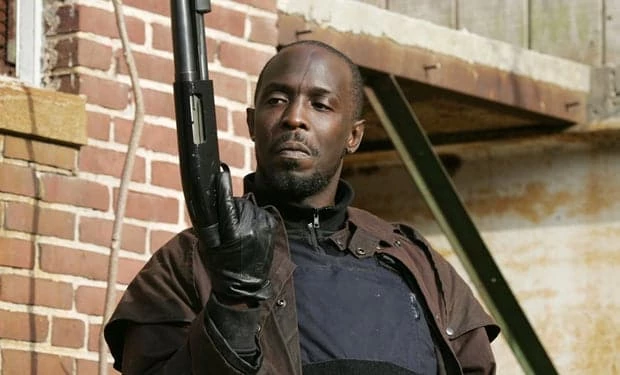Why Omar Little's Death In 'The Wire' Is One Of The Most Impactful TV Moments Of All Time
The Wire, acclaimed for its gritty portrayal of Baltimore's inner city, featured one of the most iconic characters in television history: Omar Little. Portrayed by the late Michael K. Williams, Omar's notorious presence and complex moral code left an indelible mark on the show's viewers. His departure, marked by a shocking death, was not just a moment in a TV series but a seismic event that resonated beyond the screen.
Advertisement
The Rise Of Omar Little: An Unconventional Hero
 Source: HBO
Source: HBO
Omar Little, a notorious stick-up man with a sawed-off shotgun and a code of ethics, stood out in the chaotic landscape of The Wire. His uniqueness wasn't just in his criminal pursuits but in his moral compass, which set him apart as a character of depth and intrigue. His code, shaped by his grandmother, guided his actions even as he navigated the dangerous streets of Baltimore.
Omar's uniqueness lies in being a criminal who operates by his own code. His moral compass, a rarity in the world of crime depicted in "The Wire," made him a fascinating character for both viewers and critics. Even former President Barack Obama cited Omar as his favorite character, appreciating the layers of complexity in his personality.
The show's sociological approach showcased the interconnectedness of characters and events. Omar's actions, though seemingly independent, had ripple effects throughout the narrative. His raid on the Barksdales, while cool and suspenseful, led to a series of tragic events, emphasizing the show's mantra: "All the pieces matter."
Advertisement
The Death Of Omar Little: One Of The Most Impactful Moments In TV History
After the first season, Omar became increasingly untethered, pursuing his own agenda and contributing to his mythological status in the streets of Baltimore. His larger-than-life persona led to dramatic and gratifying moments, such as shootouts, daring escapes, and strategic robberies.
Omar's death, however, was marked by its stark contrast to typical TV tropes. In a convenience store, buying a pack of Newport, Omar was gunned down by the least likely suspect — a child named Kenard, associated with Marlo Stanfield. The show's no-frills presentation ensured there was no fanfare or mourning. Life in Baltimore went on, portraying the harsh reality that even iconic figures meet abrupt and unceremonious ends.
Advertisement
The death of Omar Little, though shocking, wasn't the end of his impact. In the sociological framework of "The Wire," characters were interchangeable, emphasizing systemic issues over individual fates. The show made a statement that even its most legendary character could become a footnote in the larger narrative.
In the end, Omar's victory lay not in his survival but in the fact that he was remembered while Marlo, who valued street cred over a drug empire, faded into obscurity. Through characters like Michael, Omar's spirit lived on, reminding viewers that, in the world of "The Wire," there will always be an Omar.
Reflecting on Omar's death in "The Wire," Williams admits to a profound personal impact in his posthumously published memoir, 'Scenes from My Life: A Memoir' . The actor confesses that the end of the character marked not just the conclusion of a role but a loss of identity. Having defined his worth through Omar, Williams struggled to reconcile with the reality of being himself again.
"Omar’s death was also the death of something that had grown inside of me, something I’d grown inside of, merged into. That was a crippling realization. I remember thinking that if I wasn’t Omar anymore, then who was I? I had defined my worth through this fictional character, and now I was just Mike again. I felt stripped, lost, emptied-out. It was like this darkness crept in on me during the end of that show." - Excerpt from 'Scenes from My Life: A Memoir'
Share this article
Advertisement